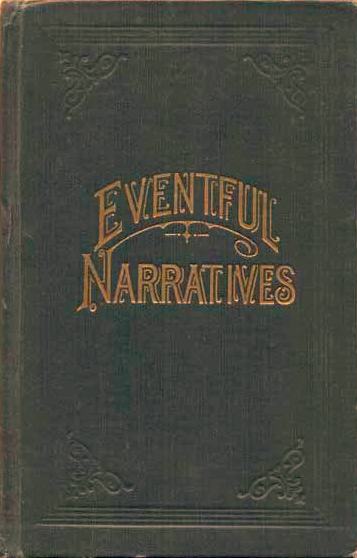Excerpts from
Juvenile Instructor - 1887
Written by Thomas A. Shreeve (1851-1931)
I retired to my berth, as you may imagine, in no pleasant frame of mind. The next morning, Friday, I awoke and found myself in a raging fever. I was not sea-sick, and, though I am subject to this trouble, during this entire voyage I felt no touch of it. The fever increased during the day, until it seemed as if my whole body were being consumed in a furnace.
No one came to enquire for me, or to offer aid; for I was not only a total stranger, but a steerage passenger—two things which, united, shut me out from help or sympathy. On Saturday morning I was worse. My tongue was swollen until it filled my mouth; it was as dry as a piece of tinder. With the intense heat of my body my teeth crumbled at a touch.
On Sunday morning I was worse; though probably the fever had not increased in intensity, because it could not; but I was very much weaker. That afternoon a passenger came to the berth, and offered me a glass of water. I took it gratefully; and this was the sole attention I received during four days.
Naturally I felt dispirited. I had not even the advantage of delirium, which accompanies most serious fevers; I was constantly awake to the full appreciation of the torture which my mind and body were enduring. Tempted by the destroyer, I felt that death would have been a welcome release from my pain. The horror was almost unbearable.
On Sunday night, the entire company of passengers, with the exception of myself, gathered in the main cabin, upon invitation of a jolly doctor, who held what he called:
"A Saturday Night at Sea."
To every person who could sing or make a speech, some part was assigned for the general amusement. From my berth in the steerage—by drawing away the curtains, I could look out upon the festive scene, in which I could bear no part, for I was helpless and speechless.
The doctor had been a surgeon in the hospitals of England, and also in the Crimean War, and he opened the entertainment by a lecture upon the strange experiences of a British army surgeon and hospital physician. While he was talking upon this suggestive subject, my mind was led to a contemplation of death. I felt with a kind of listlessness that I would soon be beyond the reach of earthly physicians, unless something could speedily be done for my relief.
After a severe struggle I so far overcame the dreadful feeling with which the adversary had filled my heart that I was able to call upon the Lord in prayer. As I silently communed with Him, I gained power; my faith was restored, and my hope for life was quickened.
I asked Him in the name of the Lord Jesus to be merciful unto me; I felt then at perfect liberty to speak to Him as a son would talk with a good earthly father. I said that I had come into this distant region—not to fulfil my own worldly wish, but at the behest of His servants, to proclaim His gospel, and to build up His Kingdom. My companion was hundreds of miles distant from me, and I was beyond the reach of earthly help or earthly sympathy. It was my earnest desire to be restored to life, that I might fulfil the mission to which I had been assigned by His representatives on earth; and to this end I asked that some aid might be given me to rebuke the devil, and to banish the horrors which I felt would soon, if allowed to work their way, bring dissolution.
When my prayer was ended, I heard the doctor still talking; but under the sound of his voice I fell asleep.
I dreamed that I was back in Sydney, sick in bed. Brother May was at a table in the room, and we were conversing. Across the room, to the right of my bed, was an open door, which I could see without lifting my head from the pillow.
While I lay there listening to the words of Brother May, a personage clothed in a white robe entered the room. He appeared to be a young man, and had a very pleasing countenance. This personage passed around the bed and stood near the table. Brother May rose and offered the visitant a chair, and then withdrew. The young man seated himself at the table and opened a book. He said:
"Are you ready to report the Sydney Branch?"
"Yes, sir," I responded.
"Then proceed."
I gave him an account of all our doings in Sydney, beginning with our first effort of reorganizing, and closing with my last act previous to sailing—for all these things seemed plain to my mind. The recital seemed to occupy me several minutes, and I continued to speak freely. He wrote in the book rapidly, and never once interrupted me. I felt that he was taking every word I uttered. When I stopped, he asked:
"Have you anything more to say?"
"No, sir," I answered.
Then he turned the leaves back, and seemed to read from the beginning. He said:
"Very well. Now where are you going?"
"To New Zealand."
He recorded my answer in the book, and then signed his name—I could not see the words of his name, but I felt that he was writing his own signature. He closed the book and walked around to the right side of the bed, shook hands with me, and said:
"Good-by; I will be there before you."
